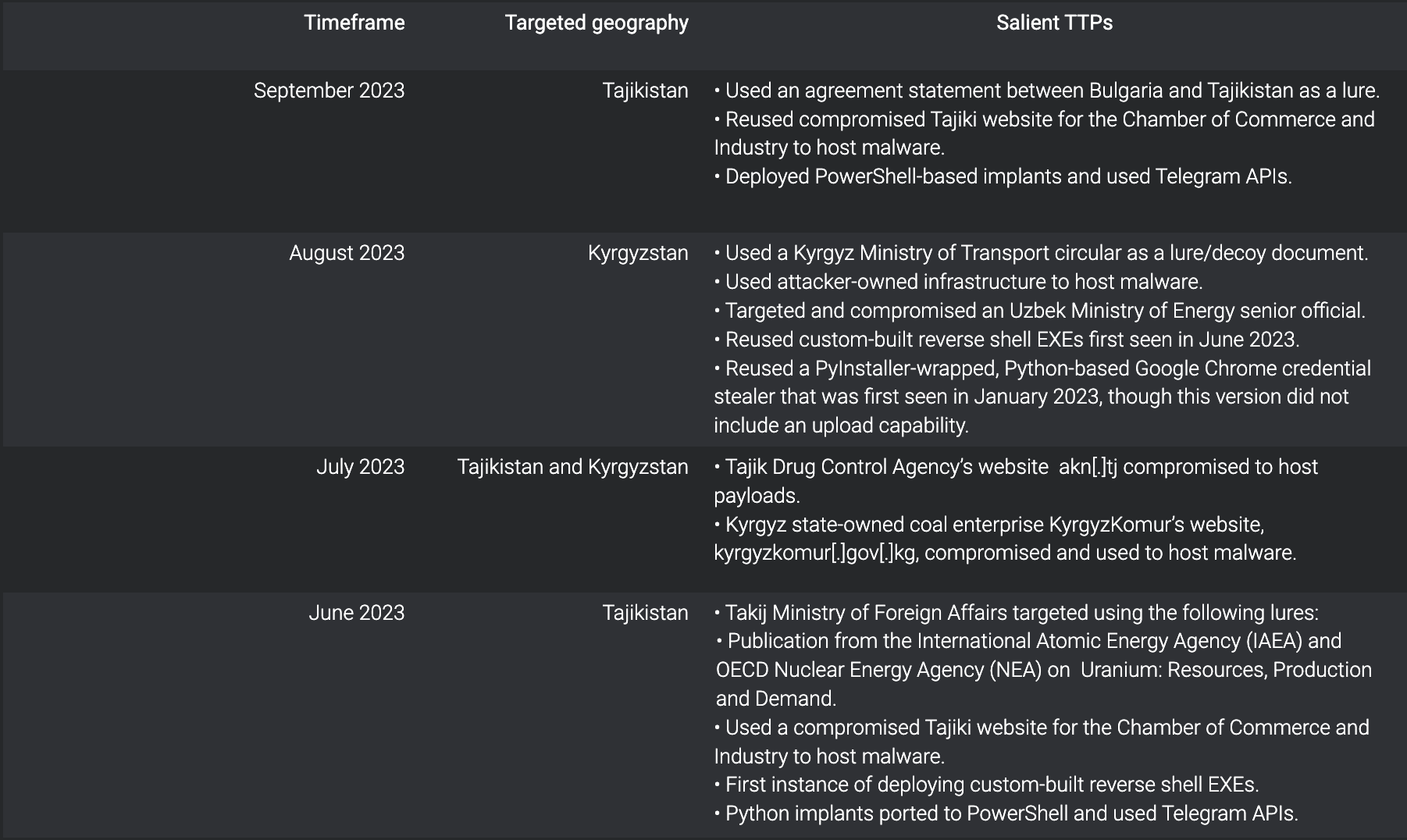Kazakhstan-based hackers targeting gov’t websites in Central Asia, Cisco says
Hackers believed to be based in Kazakhstan are targeting other members of the Commonwealth of Independent States in a wide-ranging espionage campaign, according to new research.
Cisco’s Talos group has spent months tracking YoroTrooper — a hacking group focused on espionage that first emerged in June 2022. Researchers said the group’s targets, use of Kazakh currency, and fluency in Kazakh and Russian is part of what led them to believe the hackers are based in Kazakhstan.
YoroTrooper appears to have performed defensive actions in protecting the Kazakhstani state-owned email service and have only ever attacked the Kazakh government’s Anti-Corruption Agency.
Asheer Malhotra, a Cisco Talos threat researcher, told Recorded Future News that the group has actively tried to disguise its operations to make it seem like the attacks are coming from Azerbaijan in an attempt to “generate false flags and mislead attribution.”
“In terms of their modus operandi, their tactics and tools aren’t very sophisticated, however YoroTrooper has still enjoyed a substantial amount of success compromising targets in CIS [Commonwealth of Independent States] countries over the past two years, owing to their aggressive attempts to target their victims. Further, the threat actor shows no signs of slowing down in spite of Cisco Talos’ initial disclosure detailing YoroTrooper’s activities earlier this year,” Malhotra said.
Cisco Talos tracked attacks involving institutions and officials in Azerbaijan, Tajikistan, Kyrgyzstan, Uzbekistan, using VPN services to make it look like their hacks come from Azerbaijan.
The hackers compromised multiple state-owned websites and accounts belonging to government officials between May 2023 and August 2023.
Most of the attacks start with phishing emails and deploy custom-made malware that allows the group to steal data and credentials.

Countries attacked by YoroTrooper. Image: Cisco Talos
Researchers found the hackers using Russian in their attempts to debug their tools while also visiting numerous websites written in Kazakh. In June the hackers began using Uzbek in their code, another language spoken widely in Kazakhstan.
The hackers use cryptocurrency…



